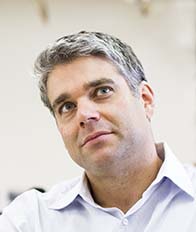How do biodiversity loss and social conflict affect human health?
As climate change cuts into biodiversity, humans will be among the species at risk. We know this because we can already see the pattern. Fishing provides the prime source of animal protein for much of humankind and accounts for 13 percent of all jobs around the world. But overfishing has led to vanishing stocks and to longer hours and higher costs in the global fishing industry as fishermen have to work farther and farther out at sea in order to make a living. Threatened by economic loss, fishermen in South East Asia and elsewhere have turned to forced labor, now a crime deeply imbedded in the global fishing industry. Berkeley ecologist and wildlife biologist Justin Brashares studies how economic and political systems affect the environment and how the changing environment in turn impacts culture. Surprisingly, he has found that police action is likely to be less effective in controlling human trafficking in fisheries than simply working to maintain sustainable fisheries. Human trafficking is only one consequence of diminishing wildlife stocks. Brahshares and his research group have traced 300,000 items of illegally caught wild meat, from primates to elephants, as it passes through the dark marketplace. Understanding the interplay between the environment, economics and cultural change can provide insights and hope to sustain all three.
 Justin Brashares
Justin Brashares
Justin's research centers on how consumption of wild animals and conversion of natural habitats affects the dynamics of animal communities and the persistence of populations. The work of his research group extends beyond traditional animal conservation to consider the economic, political, and cultural factors that drive, and are driven by, changes in wildlife abundance and diversity. Read more.
